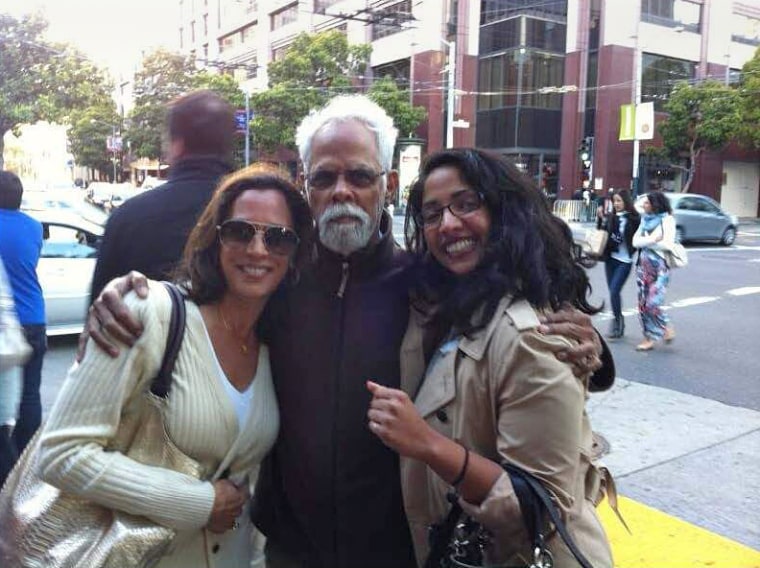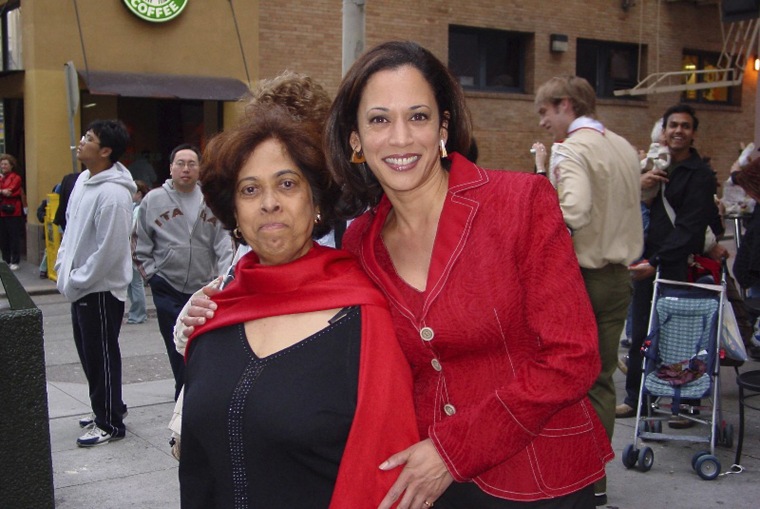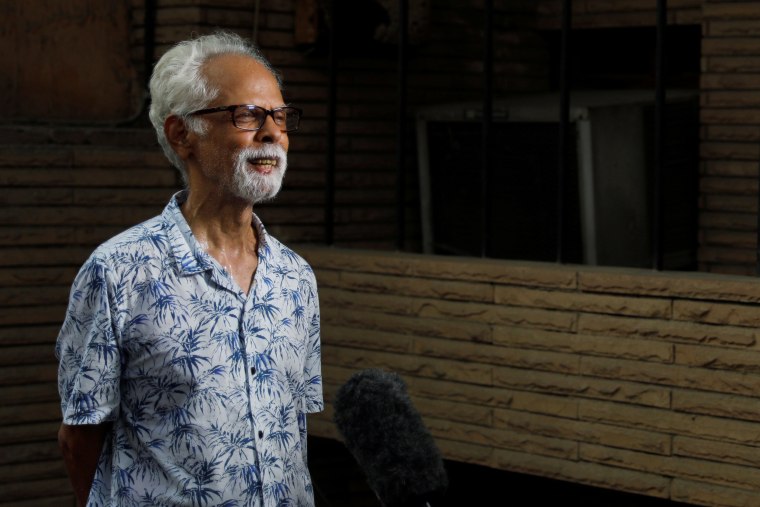The political journey of Sen. Kamala Harris, the first vice presidential candidate of Indian origin, has inspired millions of Indians, many of whom lofted banners of congratulations in her ancestral city of Chennai after learning that she had been named the Democratic vice presidential nominee.
The admiration goes both ways. The senator's extended Indian family, particularly her mother, Shyamala Gopalan, was an inspiration for Harris as she rose to the pinnacle of American politics, her uncle Gopalan Balachandran said in an interview at his home in India's capital, New Delhi.
"That is the value — the value that you treat everybody equally. Don't worry about where you are from, where do you go, what do you eat, what dress do you wear, what languages they speak. It all doesn't matter," Balachandran said. "That's what my father told me and my sister. That's what Shyamala told Kamala and [her sister] Maya. That's the values they have."
Those values will be on display Wednesday night when Harris, D-Calif., will address the Democratic National Convention to introduce herself as the first Black and Indian American vice presidential nominee.

For Harris, leadership is a legacy. Her grandfather P.V. Gopalan was a highly regarded diplomat who played a key role in resettling refugees from East Pakistan (later Bangladesh) in India following the horrors of its partition war with Pakistan in 1971.
Harris' grandfather, who died in 1998, also imparted in Harris' mother a fierce sense of independence and resolve. He blessed his daughter's decision to move to America at 19 in 1958 to pursue graduate studies in California, even though he learned about the opportunity only after she had been accepted, Balachandran said.
Download the NBC News app for breaking news and politics
He may have been accepting of her choices, but that generosity of spirit extended only so far financially. The elder Gopalan told his daughter that he would pay only for her first year of studies. After that, he said, she was on her own, according to Harris' uncle.
That was because Harris' grandfather expected his children to plot their own course in life by using their own means — an up-by-the-bootstraps mentality that Harris' uncle said his sister passed to her daughter.
"Look, I can speak for hours about Shyamala now. She was a pioneer," Balachandran said. "She was a great inspiration to Kamala and Maya. There's no question about it. She was the single most important person in their lives." Harris' mother died in 2009.
It was not just Harris' mother who may have been an inspiration: Balachandran himself also studied in the United States, receiving his doctorate in economics and computer science from the University of Wisconsin. He later returned to live and work in India.
Harris' uncle watched with admiration as Gopalan threw herself into the political ferment of the University of California campus at Berkeley during the early 1960s, joined the surging civil rights movements for Black Americans and eventually earned her doctorate in nutrition and endocrinology.
"At the time, there were not many Indians living in the Bay Area. And certainly no single girls," Balachandran said. "She did a lot of things which ... very few had done at the time. And she did it on her own volition because of what she believed in."

Harris was raised in that activist culture.
Harris "has been active in the civil rights movement from the day she was born," Balachandran said. "Kamala went to a lot of demonstrations from the age of 3. But in the early years, she used to see only the feet around her because she was sitting in a stroller."
Balachandran is sure she would carry that same sense of racial justice to the White House, even if she was too small to remember those early days.
Among Gopalan's daring choices was her marriage to Harris' father, a Jamaican graduate student named Donald Harris, in 1963, five years after she arrived in America.
By both Indian and American standards, it was not a conventional match, as it flouted both religious and racial boundaries. But Gopalan would not be constrained by convention, and her parents accepted the match with the same open-mindedness with which they accepted many of their children's choices.

Years later, Balachandran got his first glimpse of his family's ambitious legacy in person when he saw Kamala Harris campaign for attorney general of California in 2010 while still serving as district attorney of San Francisco, a position she held from 2004 to 2010.
"I knew that she would go for bigger. You know she wouldn't be content with just being a district attorney," he said. "Either go to the state level or national level, but not till then."
It was an ambition Balachandran recognized. He had seen it years earlier, in his sister.
